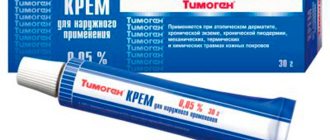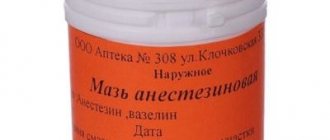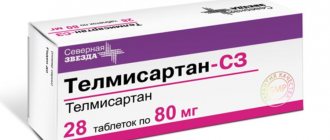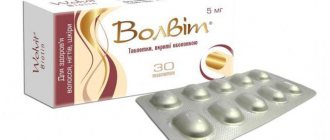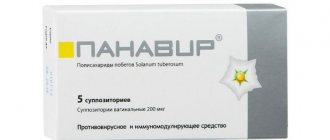Release form and composition
Dosage form – vaginal suppositories: white with a yellowish tint or white, torpedo-shaped (5 pcs. in blister packs, 1 or 2 packs in a cardboard box).
Active substances in Vagiferon (in 1 suppository):
- recombinant human alpha-2b interferon – not less than 50,000 IU (international units);
- fluconazole – 200 mg;
- Metronidazole – 150 mg.
Auxiliary components in the composition of Vagiferon: disodium edetate – 2 mg; boric acid – 400 mg; base (macrogol 400 – 8%; macrogol 1500 – 92%) – up to 2000 mg.
Alcohol compatibility with antibiotics
One of the components of the suppositories (methionine) has very low compatibility with alcohol . When they are combined, the effect on all organs doubles, and the body’s functioning malfunctions. In this case, the liver experiences a greater load. Alcohol and the drug, after entering the body, must be processed by liver cells, which means that the liver will process substances with double the load.
The drug is completely eliminated from the body after 3 days. Drinking alcoholic beverages is strongly discouraged at this time.
Pharmacological properties
Pharmacodynamics
Vagiferon is one of the combination drugs for intravaginal use. It has antiviral, immunomodulatory, anti-inflammatory, antifungal, antimicrobial and antiprotozoal (trichomonacid) effects.
Properties of active components:
- Metronidazole: is a derivative of 5-nitroimidazole; has antiprotozoal and antibacterial effects. The mechanism of action lies in the biochemical reduction of the 5-nitro group of metronidazole by intracellular transport proteins of protozoa and anaerobic microorganisms. Shows activity against Gardnerella vaginalis, Trichomonas vaginalis, as well as gram-negative anaerobes Bacteroides spp., Fusobacterium spp. and some gram-positive anaerobes (susceptible strains - Peptococcus niger, Eubacterium spp., Peptostreptococcus spp., Clostridium spp., Mobiluncus spp.). Facultative anaerobes and aerobic microorganisms are not sensitive to metronidazole;
- fluconazole: has a highly specific fungicidal (antifungal) effect. Shows activity against mycoses, including Candida spp. (including generalized forms of candidiasis due to immunosuppression), Coccidioides immitis and Cryptococcus neoformans, Blastoyces dermatitidis, Microsporum spp. When administered intravaginally, it is more active against Candida albicans, and less active against Candida glabrata;
- Interferon alpha-2b: has a pronounced immunomodulatory and antiviral effect.
Pharmacokinetics
The bioavailability of metronidazole after intravaginal administration is 20% higher compared to oral administration. After intravaginal administration, it is subject to systemic absorption (approximately 56%). Metabolized in the liver by hydroxylation, oxidation and glucuronidation. The activity of the main metabolite (2-hydroxymetronidazole) is 30% of the activity of the parent compound. It is excreted 40–70% through the kidneys (in unchanged form - about 20%). The half-life ranges from 6 to 12 hours.
The pharmacokinetics of fluconazole and interferon with intravaginal use have not been studied.
Price for Viferon candles
Viferon suppositories are sold in pharmacies without a prescription from the attending physician, but this does not mean that you need to self-medicate. We must not forget that suppositories have different concentrations of the drug and therefore Viferon-1, -2 are intended for children, Viferon-3, -4 - for adults. This circumstance explains that the price of Viferon candles for children is much lower. Let's look at approximate prices:
- 150,000 - 270-300 rubles;
- 500,000 - 310-370 rubles;
- 1,000,000 - 440-540 rubles;
- 3,000,000 — 790-920 rub.
The drug can be stored in the refrigerator for no more than 2 years. The countdown starts from the release date.
Viferon does not heal on its own, so to speak.
It only helps to ensure that the synthesis of viral proteins no longer occurs. Therefore, it is especially important to use it together with other drugs. Not only does it have no side effects, but it has a very important property - compatibility with all medications. In some cases, it is permissible to use Viferon while breastfeeding. This article is for informational purposes only, please consult your doctor for details!
Side effects
Vagiferon, as a rule, does not lead to side effects. In some cases, the development of allergic and local reactions may occur.
Disturbances characteristic of metronidazole (its systemic absorption is 56%): ataxia, convulsions, leukopenia, mental changes (in the form of anxiety, mood lability); rarely - dizziness, allergic reactions, loss of appetite, nausea, vomiting, abdominal cramps/pain, diarrhea, constipation, headache, unpleasant or metallic taste, change in taste, dry mouth, increased fatigue.
Reviews about Vagiferon
The drug is quite rare in pharmacies, so there are few current reviews about Vagiferon. Women who have used vaginal suppositories respond positively to the drug. Vagiferon is effective in the complex treatment of mixed and bacterial vaginosis and vaginitis when used according to indications and according to the instructions. The advantages of the drug include the almost complete absence of side effects (since its components act locally). The disadvantage of the drug, according to reviews, is its rare availability in pharmacies. Also, some women noted that the drug did not help, other patients named the intravaginal method of administering suppositories among the disadvantages.
special instructions
It is recommended to abstain from sexual intercourse during treatment.
In cases of using the drug in combination with oral metronidazole, especially when conducting a repeated course, it is necessary to monitor the peripheral blood picture (associated with the risk of developing leukopenia).
You should not drink alcohol during therapy (due to the likelihood of disulfiram-like reactions, manifested in the form of spastic abdominal pain, nausea, vomiting, headache, sudden flushing of the face). Metronidazole should not be prescribed to patients who have taken disulfiram within the past 14 days.
General information about candles
Viferon is prescribed by a doctor . The drug is an effective antifungal and antiviral agent. It is widely used in the treatment of a large number of diseases and is prescribed for the following problems:
- urogenital infections in women;
- colds;
- flu;
- ARVI;
- immunodeficiency.
The drug is able to actively fight many diseases.
Vagiferon itself does not cause harm to the body, but its use puts a strain on the kidneys and liver, so the drug is contraindicated for use in certain categories of people. Viferon is not recommended to be taken:
- nursing mothers;
- pregnant women;
- children under 18 years of age;
- patients suffering from serious pathologies of the kidneys and liver.
The drug must be used strictly according to the instructions. Its action is described in detail.
Operating principle
The main active ingredient included in the drug is interferon . The substance is an analogue of protein in the human body. The only side effect may be an allergic reaction, which disappears without a trace within 72 hours. Interferon functions:
- activates the body's defense processes;
- produces antibodies to fight viruses;
- capable of creating an unfavorable atmosphere for viruses and bacteria;
- prevents the growth and reproduction of viruses.
Vagiferon interacts well with a large number of medications. You can find different forms on sale: ointments, gels and suppositories.
Many analogues are produced in the same forms:
- Genferon.
- Galavit.
- Depantol.
- Viferon.
Candles have low compatibility with alcohol. This also applies to tablets. Gels and ointments are prescribed for local treatment of areas of the skin affected by bacteria. When drinking alcohol and simultaneous treatment with these drugs, itching, burning, and urticaria may occur.
Negative consequences
The drug in the suppositories enters the bloodstream, so simultaneous consumption of alcohol can provoke a number of undesirable side effects. In addition, alcohol entering the bloodstream reduces the effectiveness of the drug, which leads to an increase in the drug dose.
Alcohol and interferon in combination can cause the following undesirable consequences:
- allergic reactions;
- constant dizziness accompanied by nausea;
- severe headaches;
- vomit;
- disorders of the gastrointestinal tract.
Alcohol has an adverse effect on the functioning of the cardiovascular system, brain, kidneys, and liver.
Viferon vaginally
Increasingly, drugs that increase general and local immunity are used as part of complex therapy for various diseases. One of the most popular, effective and safe immunostimulants are Viferon suppositories based on artificially synthesized human interferon.
Despite the fact that suppositories are intended primarily for rectal administration, the drug has found wide use in gynecological practice for the successful treatment and prevention of certain urogenital and fungal infections.
Use during menstruation
Many patients are concerned about the question of whether it is possible to use suppositories during menstruation. The effectiveness of prevention and treatment of most diseases does not depend on a woman’s menstrual cycle.
However, if genital herpes worsens or foci of infection are localized on the external genitalia and in the lower third of the vagina, it is recommended to replace sanitary pads with tampons to prevent contact of the lesions with bloody discharge. If for some reason this is not possible, suppositories should be inserted into the rectum during menstruation.
Indications for vaginal use
In gynecology, suppositories have proven themselves in the complex treatment of the following diseases:
- sexually transmitted infections (trichomoniasis, chlamydia, ureaplasmosis, gardnerellosis, cytomegalovirus infection, bacterial vaginosis);
- other infectious and inflammatory urogenital pathologies;
- papillomavirus infection (HPV);
- fungal diseases (mycoplasmosis, recurrent thrush);
- herpetic infection of the genital type.
During pregnancy, Viferon suppositories are also often prescribed vaginally as a preventive measure for pathologies arising due to weakened local immunity. Some specialists resort to this medication for certain complications of pregnancy or the risk of intrauterine infection.
The feasibility of using the drug is due not only to its beneficial effect on the state of the female reproductive system, but also to the effective protection of the fetus, for which many maternal diseases can be detrimental.
Rules of application
The treatment regimen and dosage of the drug for rectal and vaginal use, as a rule, do not differ. Most often, adult patients are prescribed one suppository of 500 thousand IU twice a day. Depending on the characteristics and severity of the disease, the dosage may be increased.
For the most effective action of interferon, it is necessary to insert suppositories deep into the vagina always at the same time, with an interval of 12 hours. It is undesirable to use melted suppositories, and fallen suppositories should be replaced with new ones. After administration, it is recommended to lie down for 15-20 minutes to speed up the onset of the drug’s effect and prevent it from slipping out.
The duration of taking the drug is 5-10 days . For most urogenital pathologies without complications, one or two courses of therapy are sufficient. When treating recurrent candidiasis, herpetic infection, as well as in the presence of diseases accompanied by a decrease in general immunity, the number of courses of administration of suppositories increases to three or four or more with a break of 5 days, depending on the recommendation of the attending physician.
If a patient is diagnosed with HPV, for which no effective treatment methods have currently been developed, Viferon suppositories can be prescribed every 4-6 months for the purpose of immunocorrection.
The course of treatment and prevention of infections and inflammatory pathologies of the genital tract in pregnant women is somewhat different. They are also prescribed suppositories at a dosage of 500,000 IU twice a day, but the drug is administered according to the following scheme:
- Starting from the gestational age of 14 weeks, daily for 10 days.
- Over the next 9 days, 3 times with an interval of 3 days.
- Every four weeks for 5 days until delivery.
To increase the effectiveness of the immunomodulator, alternating rectal and vaginal administration of suppositories is allowed. If there are clinical indications, the duration and regimen of therapy can be changed according to the doctor’s decision.
